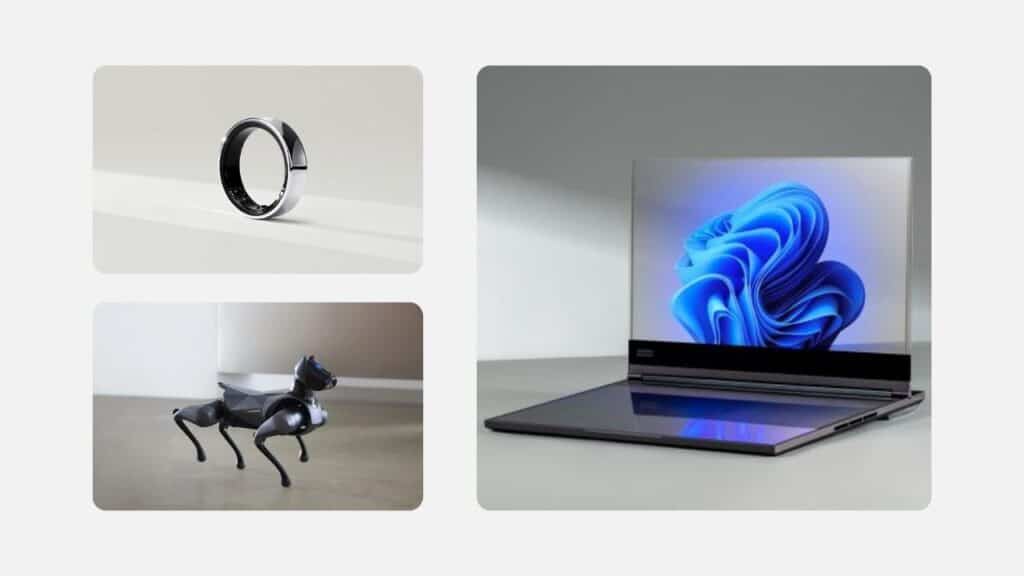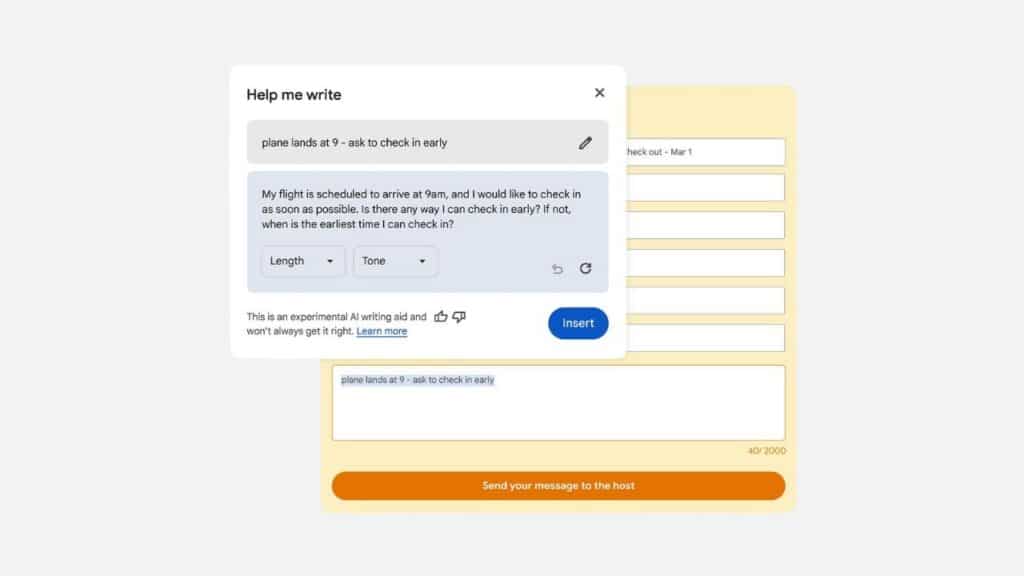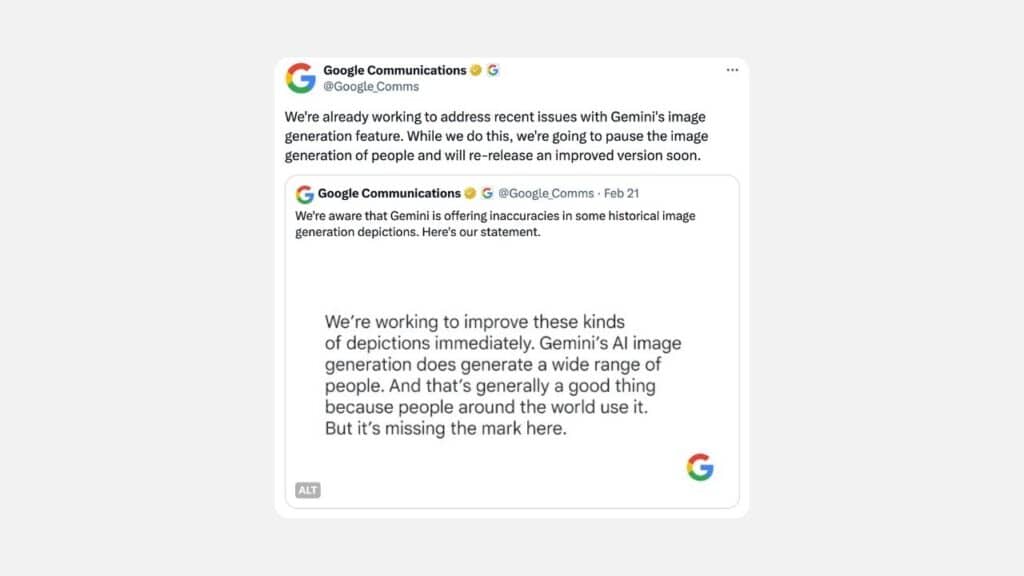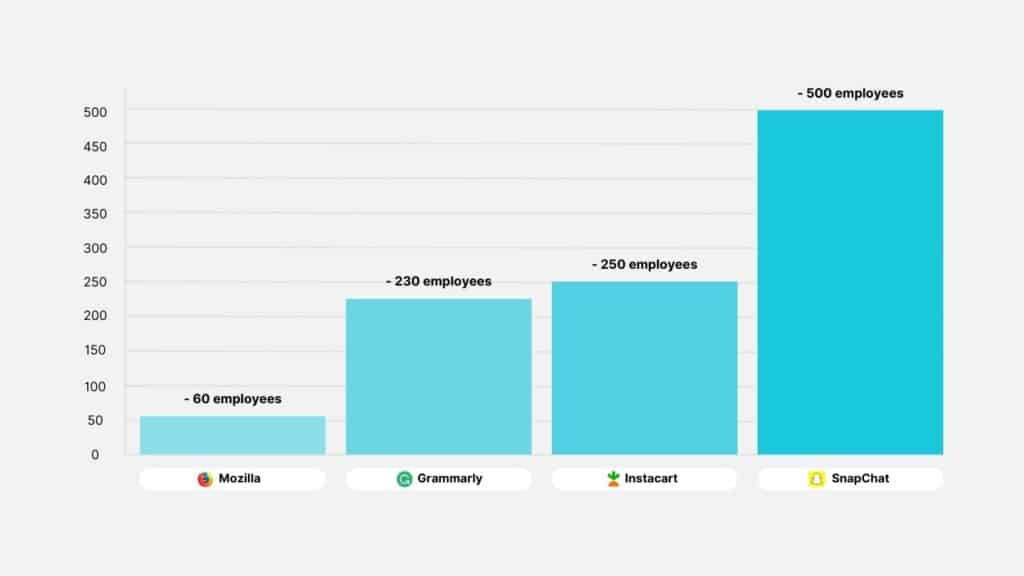Monthly Tech Digest: MWC in Barcelona, Recent Updates in Apps, and Google Developments
Over the coming minutes, we’ll uncover the freshest tech news, delve into the exciting developments unveiled at MWC in Barcelona, catch up on the most recent app innovations, explore the latest advancements from Google, and shed light on the recent workforce layoffs in February. Without further ado, let’s jump into it!
Events
MWC in Barcelona: What’s hot off the tech press?
From February 26th to 29th, the Mobile World Congress (MWC) in Barcelona has been buzzing with excitement as tech giants showcase their latest innovations. Among the highlights are Samsung’s unveiling of its inaugural smart ring, Xiaomi’s surprising debut of its first electric car, the futuristic Xiaomi CyberDog, and Lenovo’s introduction of an awe-inspiring transparent laptop.

Besides, Brad Smith, President and Vice Chair of Microsoft, unveiled the “AI Access Principles,” a comprehensive framework consisting of 11 key points. Smith emphasized that these principles will guide Microsoft’s operations concerning AI data center infrastructure and other vital AI assets globally. Stay tuned for more updates from this cutting-edge event in the coming days, as the conference comes to an end on February 29th.
Latest news in Apps
Instagram is developing a “Friend Map,” allowing users to monitor their friends’ locations
Instagram confirmed to TechCrunch portal that they’re developing a “Friend Map” feature, something like Snapchat’s Snap Map. This opt-in feature allows users to track friends’ real-time locations. Although internal and not yet tested externally, it reflects Instagram’s trend of adopting popular features. If launched, it would compete with Snapchat and Apple’s “Find My” map feature. Users can choose who sees their location, with end-to-end encryption for added security. Additionally, users will be able to leave short messages, called “Notes,” on the map.
Spotify launches AUX: Connecting brands & creators, just like Meta & YouTube
Spotify has joined the ranks of Facebook, Instagram, Snap, and YouTube in bridging creators with brands through its new program, AUX. This in-house “music advisory agency” aims to connect brands with emerging artists for mutually beneficial campaigns. For example, Coca-Cola is the first brand to partner with AUX, collaborating with Berlin-based artist Peggy Gou for various projects, including live events and social media content.
“AUX is a natural step for us to help brands strengthen their music strategy and better connect with new audiences through our expert insights and observations from our music team, tailored to meet brands’ needs,” shares Jeremy Erlich, VP, Head of Music Content at Spotify, in Spotify’s blog.
While Spotify sees AUX as a way to support artists financially, some critique it as a response to the platform’s updated payment model, which allegedly favors established artists over emerging ones. Despite this, AUX offers artists an additional avenue to monetize their work in a saturated streaming landscape.
Slack integrates AI-powered search and summarization
You likely use Slack as a communication tool in your workplace or job, don’t you? Then great news for you! From now on, the work in Slack will be even more streamlined as Slack introduced new features to improve accessibility to institutional knowledge stored on its platform. With AI-powered search and summarization tools, you can now easily find and digest information within channels. Slack’s chief product officer, Noah Weiss, explains that while Slack naturally collects corporate information, extracting meaningful insights has been challenging. These new AI capabilities aim to address that. The platform now offers channel summaries, allowing users to catch up on discussions quickly.
Reddit files for IPO, offering shares to its users
According to the Wall Street Journal, Reddit intends to offer shares to its loyal users in an unconventional initial public offering (IPO) move. The social media platform plans to extend this opportunity to approximately 75,000 of its top users. Despite impressive revenue growth, Reddit continues to grapple with profitability issues, a factor that could affect its valuation upon going public. However, there are signs of improvement, notably with a net profit recorded in the final quarter of 2023. In a unique move, Reddit plans to offer shares to its users, allowing them to purchase shares at the IPO price before trading begins.
Besides, Reddit’s recent deal with Google, estimated at around $60 million per year, offers a promising revenue boost. Leveraging its large user base, Reddit aims to drive advertising revenue growth through innovative strategies involving ML and prediction models. With ambitious plans and a vast addressable market for advertising, Reddit’s IPO could not only reshape its future but also influence other tech companies to consider public offerings, potentially impacting market liquidity.
What’s new in Google?
Google introduces Gemini Ultra, its most advanced LLM by now
Google has unveiled Gemini Ultra, its latest and most powerful Large Language Model, replacing its previous Bard platform. Gemini stands out for its advanced capabilities, which are seamlessly integrated into various Google products and services. Its flagship model, Gemini Ultra, offers cutting-edge technology across text, image, audio, and video processing, enabling it to handle complex tasks like coding, logical reasoning, and creative collaboration.
Google has also introduced a new Gemini app for Android and iOS. Initially launching in English across 150+ countries, Gemini Advanced, featuring access to Ultra 1.0, will soon support Japanese and Korean languages. The new AI Premium plan offers Gemini Ultra access alongside existing Google One benefits, complete with a 2-month free trial.
Google introduces 2 new open LLMs
Right after launching Gemini models, Google launched 2 new open large language models called Gemma. The Gemma models, named Gemma 2B and Gemma 7B, are inspired by Gemini and are aimed at commercial and research usage. Gemma models are dense decoder-only models, similar to Google’s previous PaLM and Gemini models.
Developers can access ready-to-use Colab and Kaggle notebooks, as well as integrations with platforms like Hugging Face, MaxText, and Nvidia’s NeMo. Although referred to as “open models,” Gemma models are not open-source, but developers can use them for inference and fine-tuning them as needed. Google emphasizes smaller models’ improved generation quality and suitability for various AI applications. Besides, Google is releasing a responsible generative AI toolkit and a debugging tool alongside the new models.
Google Chrome introduces AI-powered writing tool by Gemini
Moreover, Google Chrome introduced a new AI writing tool powered by Gemini. This feature, an extension of Gmail’s “Help me write” feature, is now available for the entire web. Users can enable the tool through Chrome’s experimental settings menu. Gemini can assist in writing new content or rewriting existing text.

Notably, the tool considers the webpage’s context, suggesting relevant content based on the visited site. However, subscribers to Gemini Advanced do not have access to an enhanced writing model. It’s primarily designed for short-form content like emails or support requests. Users should be aware that text and webpage information may be sent to Google for improvement purposes under its privacy policy.
Google pauses Gemini’s human image generation
Not long after, Google decided to temporarily suspend Gemini’s ability to generate images of people due to the emergence of historical inaccuracies.

This decision came in response to examples of the tool producing images of historical figures that were deemed incongruous, such as depicting U.S. Founding Fathers as American Indian, Black, or Asian. These inaccuracies led to criticism and ridicule on social media platforms. Therefore, Google addressed these issues and is in the process of improving the accuracy of depictions involving humans generated by the Gemini AI suite.
Google will discontinue basic HTML view for Gmail in 2024
There was a lot of noise and misunderstanding about what actually is happening with Gmail’s Basic HTML view discontinuation. But no worries. Google just clarified that Gmail itself isn’t going anywhere. Only the Basic HTML view is being retired.
Thus, Google is discontinuing Gmail’s basic HTML view, which provides a stripped-down version of the email service, starting January 2024. Users accessing Gmail through this mode will be automatically switched to the Standard view. Although the HTML version lacks certain features like chat and spell checker, it serves users in low-connectivity areas or those preferring a simpler interface.
February layoffs
This February, mass layoffs in the tech have already been seen at several major companies, impacting hundreds of employees.

- Grammarly implements a “business restructuring,” resulting in 230 employee layoffs.
- Instacart undergoes company reshaping, laying off 250 employees, equivalent to 7% of its workforce.
- Snapchat’s parent company, Snap, has reduced its workforce by 10% to streamline the hierarchy. Planned layoffs announced by a company, impacting over 500 employees, aimed at reducing hierarchy.
- Mozilla scales back investments in various products, leading to layoffs affecting approximately 60 employees.
Those were the highlights for February. Catch you next month for another round-up in our monthly digest!





